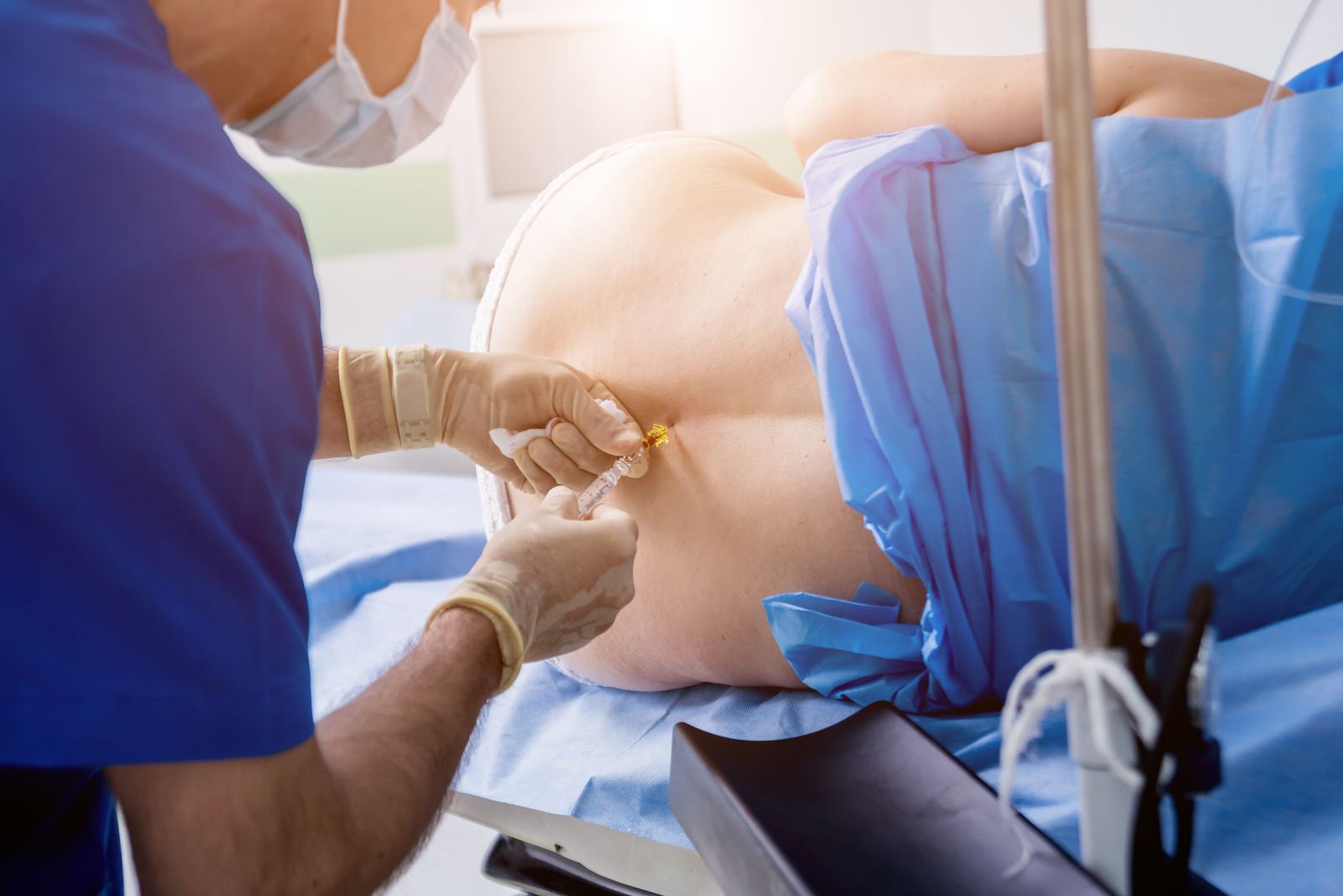Thoracic epidural (mid-back)
Reduce your pain and improve your quality of life.
SCHEDULE A CONSULTATION
At the Pain Management Clinic of Dr. Patrice Langlois, we strive to improve your quality of life through effective pain management. Thoracic epidural, a targeted therapy created to relieve mid-back pain, is a central component of our treatment portfolio. This technique involves an injection into the epidural space. It is beneficial for degenerative disc herniations (mild to moderate), spinal stenosis and arthritis. Our clinic offers you attentive care from dedicated professionals who put your comfort and overall well-being first.
What conditions can be treated with thoracic epidurals?
The thoracic (mid-back) epidural offers targeted pain relief by reducing inflammation, thereby attenuating the pain signal in the mid-back. This treatment is effective for a range of conditions, including:
- Dorsalgia
- Radiculopathy
- Disc osteoarthritis
- Spinal osteoarthritis
- Discarthrosis
- Disc degeneration
- Disc disorder
- Spinal stenosis
- Foraminal stenosis

Tired of letting chronic pain dictate your life?
Take back control with the help of our experts. The Pain Management Clinic is here to offer you personalized solutions and support every step of the way.
Contact us today to find out more.
Does chronic pain prevent you from enjoying life’s simple pleasures?
Our clinic uses a diverse range of medications, products and modalities to effectively manage and treat your pain.
Thoracic epidural injections may use the following components:

Cortisone (methylprednisolone)
Anti-inflammatory steroids that reduce inflammation and pain in the area.

PRP (platelet-rich plasma)
Preparation of concentrated platelets from your own blood containing healing factors to repair tissue and reduce pain.
Dr. Patrice Langlois discusses our specialized PRP thoracic epidural treatment. With 25 years of clinical experience and treatments ranging from injections to analgesic prescriptions and infusion therapy, he offers a compassionate approach and personalized treatment plans.
Thoracic epidural with PRP
Technique
In thoracic epidurals, the interlaminar technique targets the epidural space through the intervertebral midline. Precise positioning is guaranteed using the loss-of-resistance method. Depending on the side affected, a paravertebral approach can focus treatment on the specific structures causing pain.
Goals
The main objective of this treatment is to significantly reduce pain, aiming for at least a 30-40% reduction in patient discomfort.
Success
The success of thoracic epidural treatment varies according to the type of condition and the duration of pain experienced by the patient.

What results can I expect following thoracic epidural treatment?
Patients who receive thoracic epidural treatment can expect considerable relief from mid-back and chest pain, reduced inflammation and improved mobility in affected areas. This treatment is particularly life-changing for chronic pain sufferers, offering a crucial break in their discomfort and enabling them to return to a more active and satisfying lifestyle.
Chronic pain isn't just physical, it's emotional too. You're not alone, and we're here to help.
Contact us today to learn more.
FAQ
Visit our FAQ section to find out more about our procedures. You will find answers to many of your questions.
How long does pain relief last following a thoracic epidural?
The duration of pain relief varies according to the underlying condition and individual response. Some patients experience pain reduction for several months.
Are there any risks associated with thoracic epidural injections?
Although generally safe, potential risks include infection, bleeding and nerve damage. These complications are rare. It’s important to discuss your medical history with your healthcare provider and choose an expert in pain management, which can help minimize these risks.
Can I resume my normal activities after a thoracic epidural?
Most patients can resume their daily activities within a few days. It is recommended to avoid strenuous activity for a short period after the procedure to ensure optimal healing and effectiveness.
How soon after a thoracic epidural can I expect to feel relief?
Many patients notice an improvement in pain levels within a few days of the injection, although it can take up to a week to feel the full benefits.
Is the thoracic epidural procedure painful?
The procedure itself causes minimal discomfort due to the local anesthetic, although some patients may feel pressure during the injection. Pain relief through medication generally outweighs the brief discomfort caused by the procedure.
How often can I have a thoracic epidural injection?
The frequency of thoracic epidural injections depends on individual patient needs and the persistence of symptoms. Your doctor will make appropriate recommendations based on your specific condition and response to treatment.
Find out how we can help.
We're committed to compassionate care and giving our patients the tools they need to live life to the fullest despite the challenges of chronic pain.
Contact us today.

